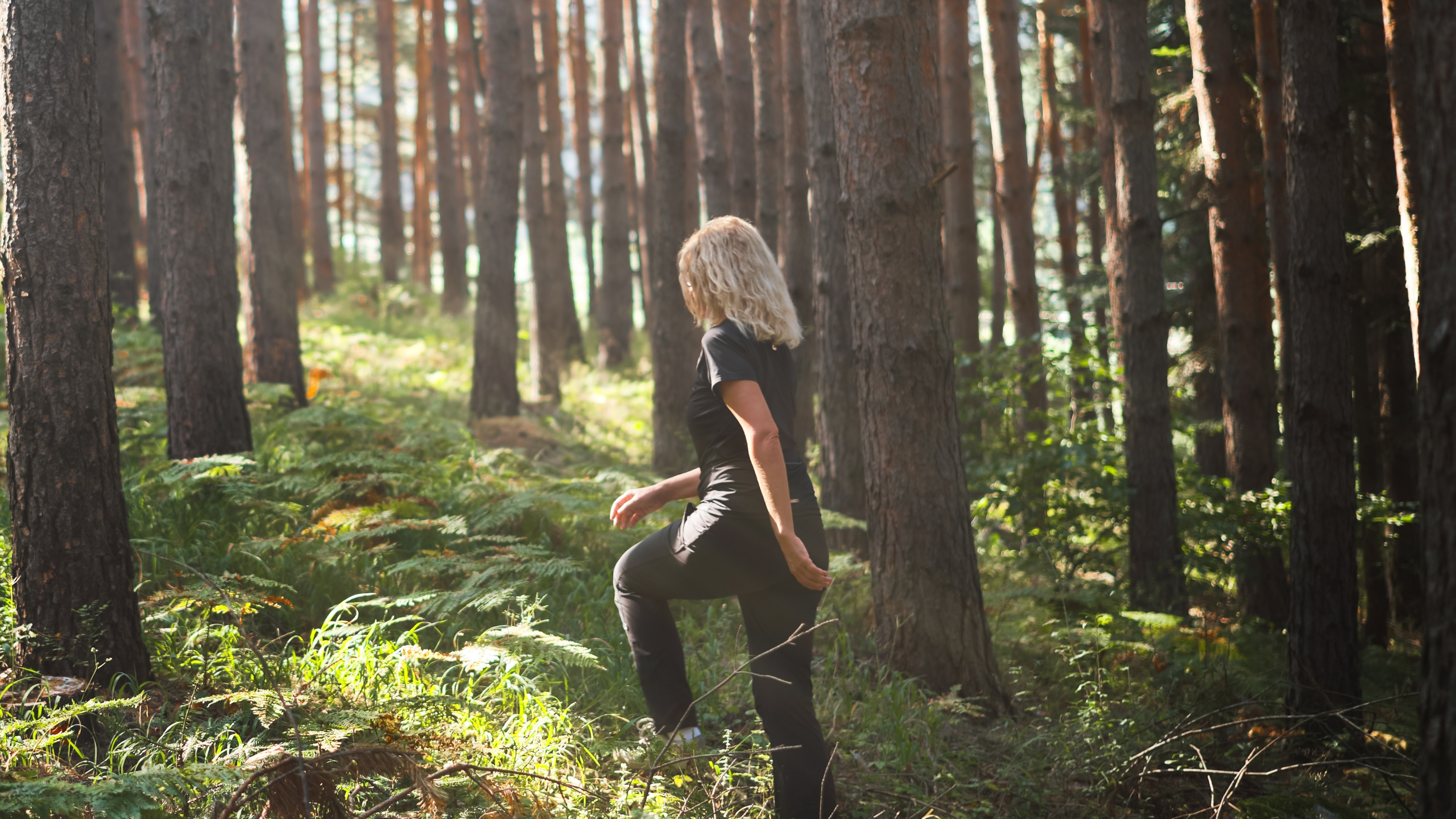Dealing with back pain can be exhausting. It can mess with your sleep, distract you at work and even make you think twice about leaving the house.
If you’ve already tried the usual advice like stretching, taking painkillers and using a hot water bottle without much relief, new research suggests it might be time to try something different. And it’s surprisingly simple.
Have you ever heard of forest bathing? It’s a Japanese practice known as Shinrin-yoku that involves slowing down and spending quiet, mindful time in nature.
Despite the name, it doesn’t mean soaking in a stream or hugging trees. It’s about switching off, breathing deeply and taking in your surroundings. If you're curious to see how your body responds, using one of the best smart rings could help you monitor changes in sleep, stress and recovery over time.
While the study doesn’t use the term "forest bathing," what the researchers found lines up with the idea. They discovered that spending time in nature helped people with chronic back pain feel better, both physically and mentally. Here’s what the research revealed.
What is the study?
This small study, carried out by researchers at the University of Plymouth and the University of Exeter, looked at how nature might support people living with long-term lower back pain.
The team interviewed just 10 participants, all of whom had experienced chronic pain for between five and 38 years. Despite the limited sample size, the insights were hopeful.
Spending time in nature helped people feel less focused on their pain, more socially connected and less stressed overall. Many preferred walking outdoors to being in a gym, and said the fresh air, greenery and sounds of water offered a calming escape from daily discomfort.
Some did note that uneven terrain or limited seating made certain places harder to enjoy, but overall, nature was a welcome outlet.

How can you implement the results into your life
You don’t need a forest on your doorstep to feel the benefits of being outdoors. Whether you have access to a small park, a garden, or a nearby walking path, spending time in nature regularly, even for just 10 or 15 minutes daily, could help reduce stress and take your mind off physical discomfort.
The study showed that spending time outdoors can support both physical pain and mental well-being. But comfort and accessibility are key, especially if you live with back pain.
If uneven paths or long walks are difficult, try finding routes with flat, even ground and benches where you can rest. Accessible parks, botanical gardens, or smooth riverside paths can be great places to start.
Even if you only have a small garden, balcony, or green space nearby, sitting outside and tuning in to natural sounds like birdsong or rustling trees can still help.
If you are hoping to walk more often, a good pair of shoes can really help. We’ve tested and reviewed the best hiking shoes to help you find supportive options for gentle walks or bigger adventures.
.png)












 English (US) ·
English (US) ·